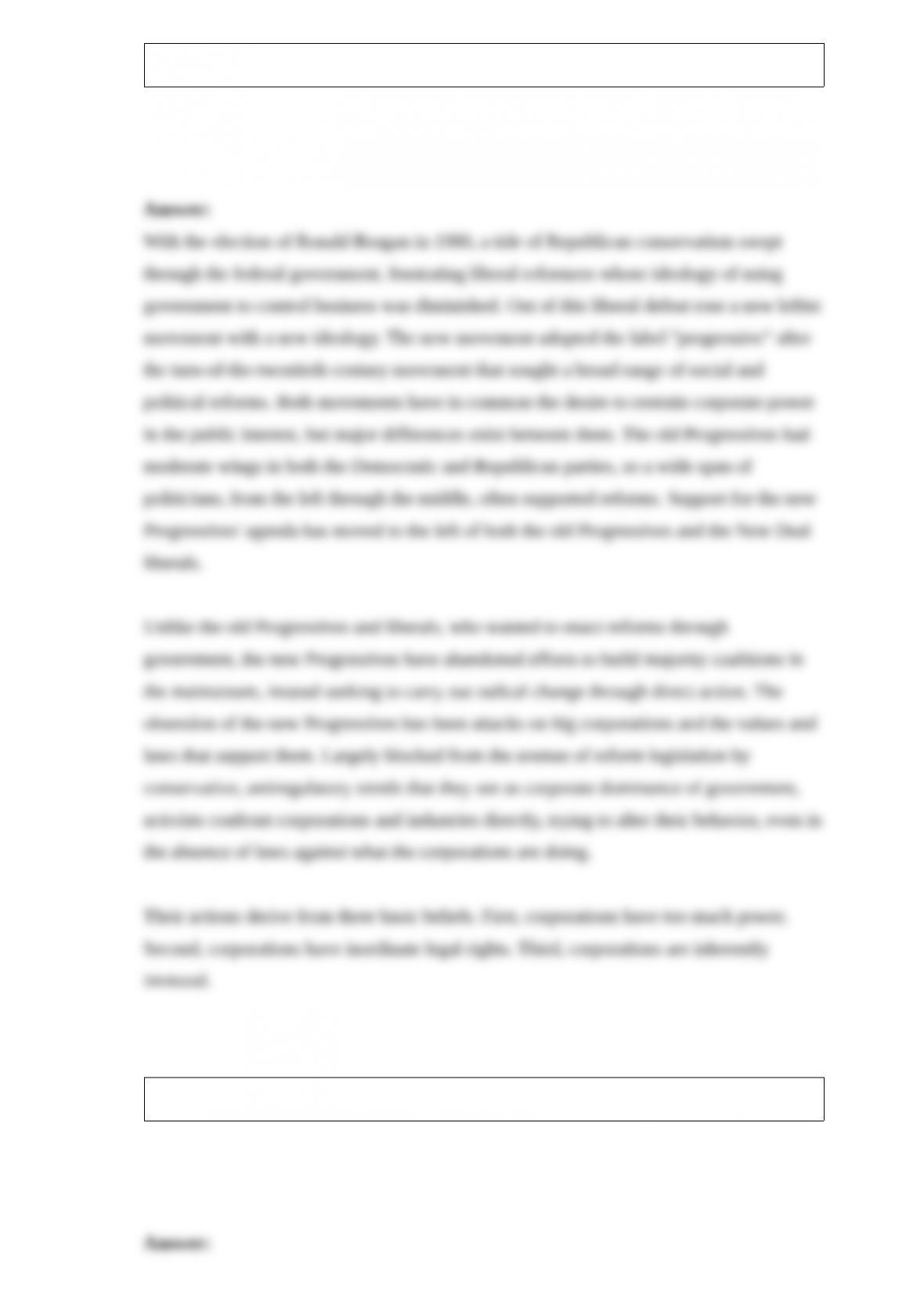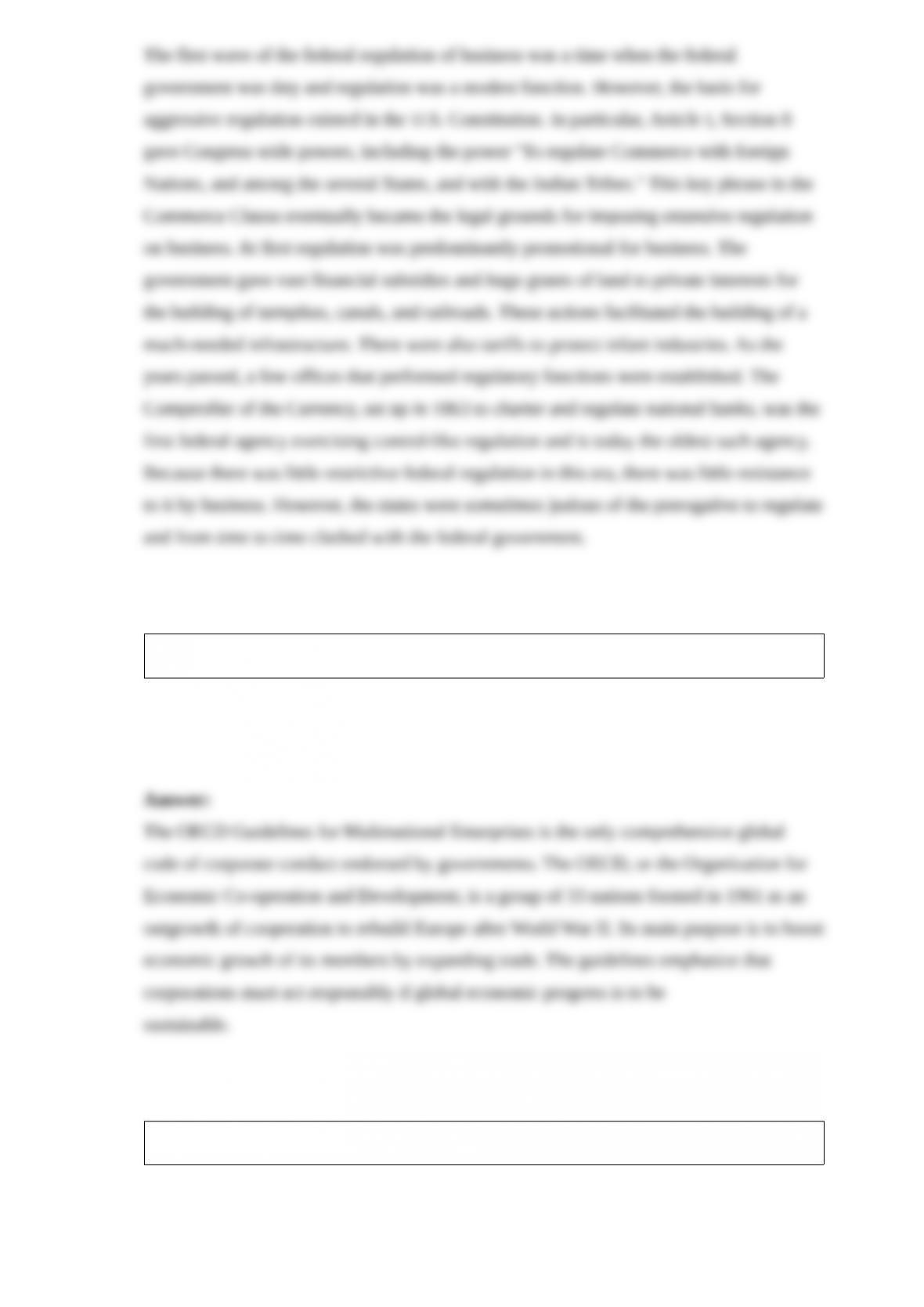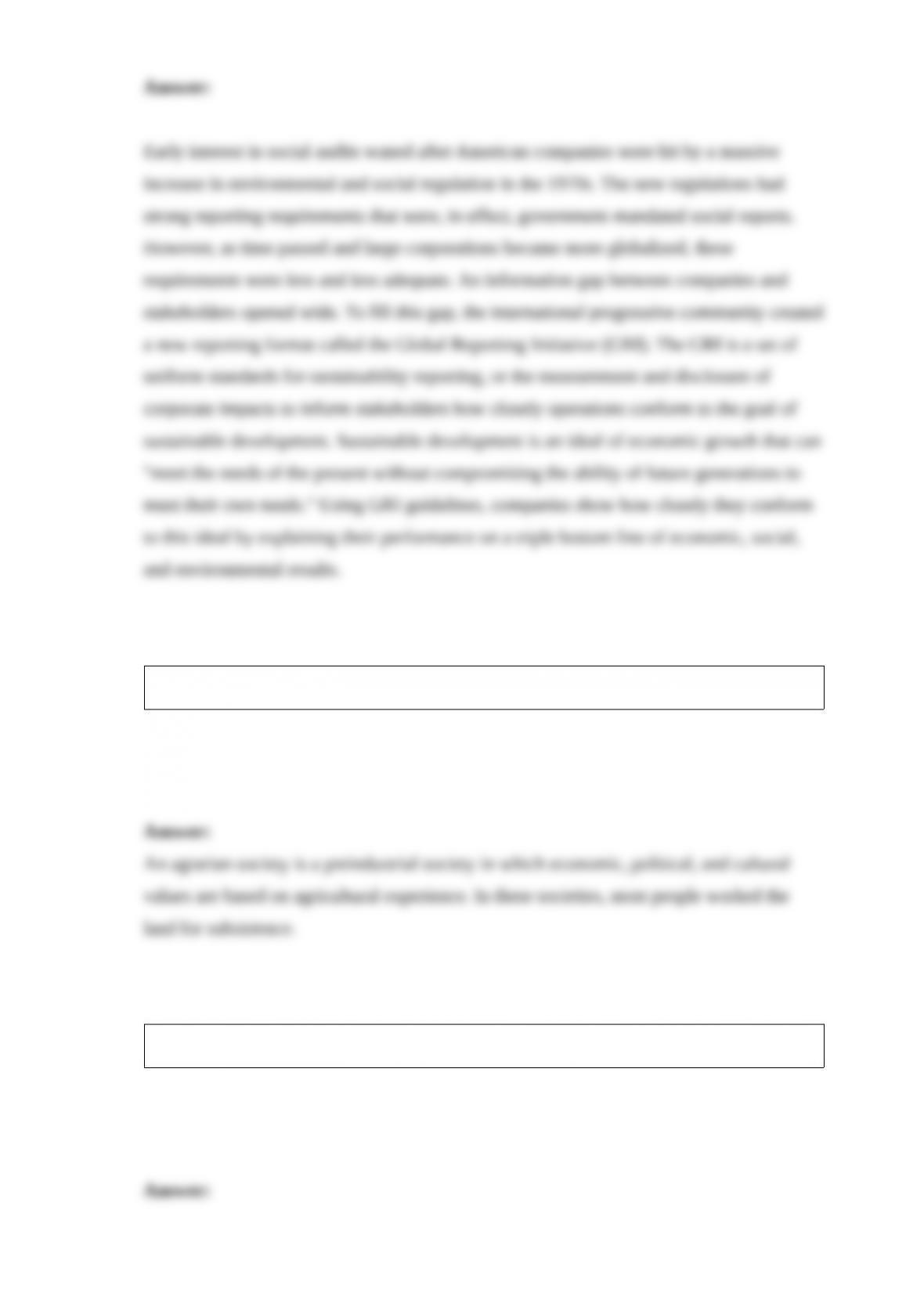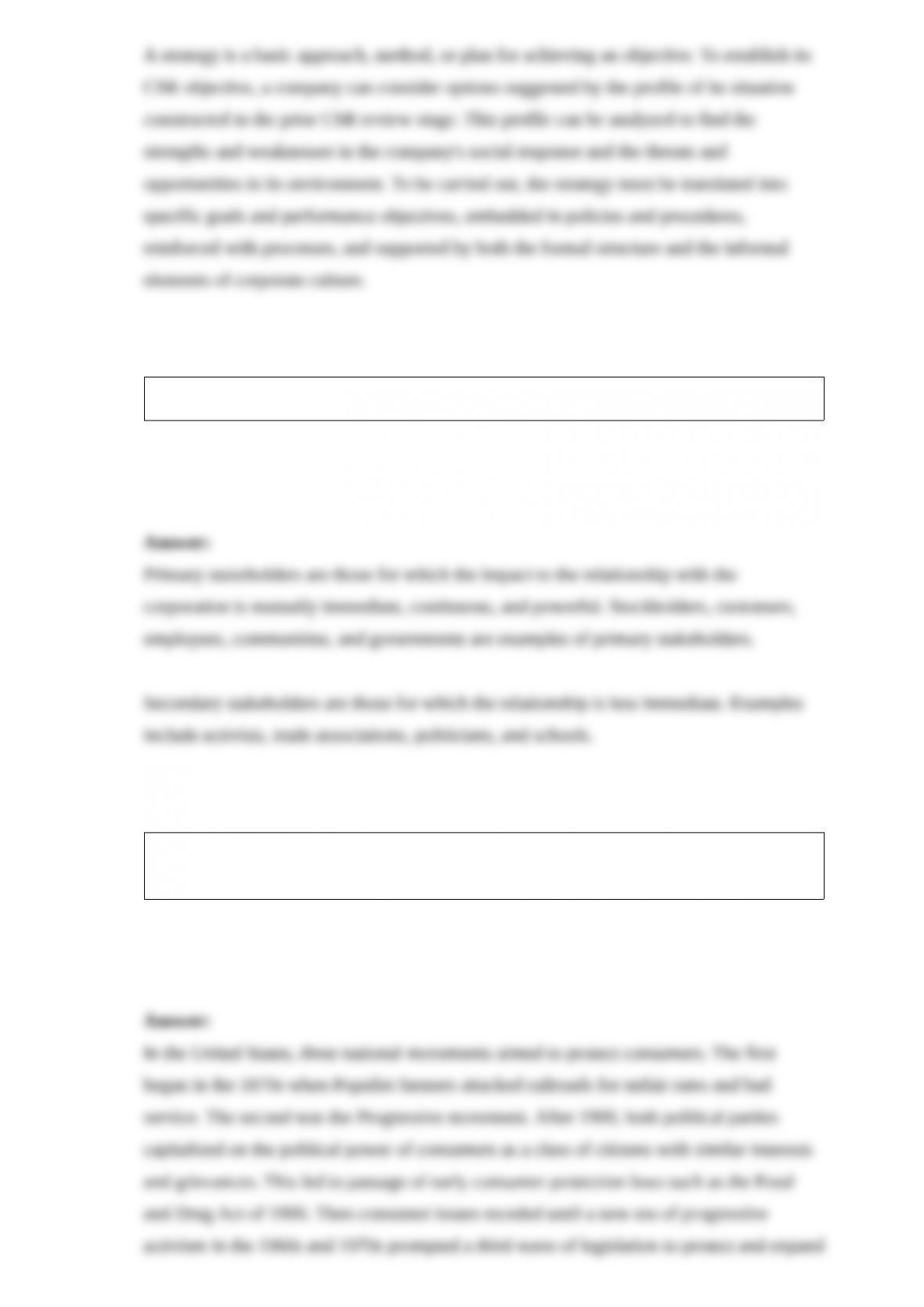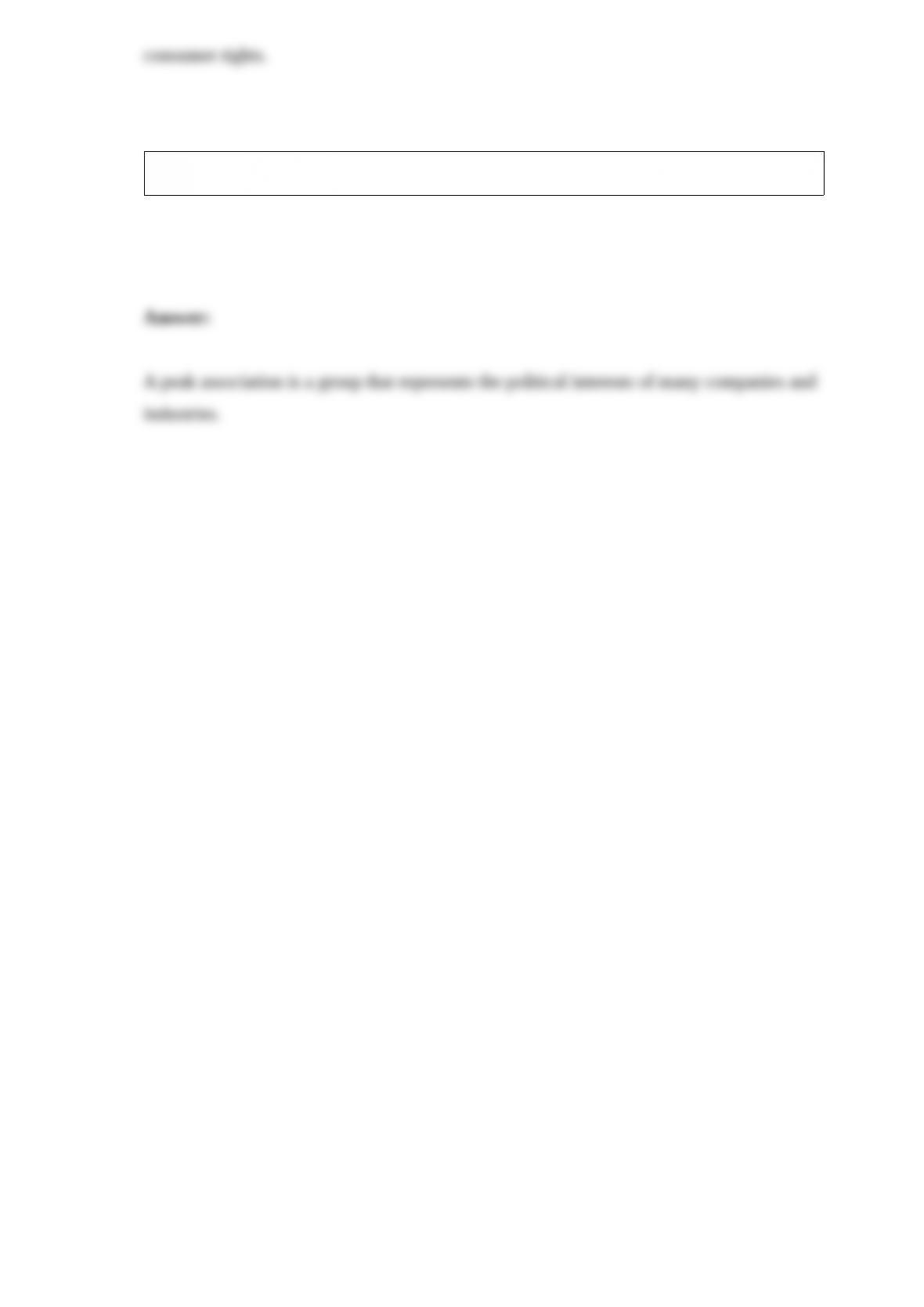Which of the following Acts prohibits employers from discriminating against applicants
or employees based on hereditary information?
A.The Employment Non-Discrimination Act
B.The Biologics Control Act
C.The Emergency Medical Treatment and Active Labor Act
D.The Genetic Information Nondiscrimination Act
Which of the following is a variant of strategic philanthropy in which charitable
contributions are based on purchases of a product?
A.Altruism
B.Checkbook philanthropy
C.Venture philanthropy
D.Cause-related marketing
Which of the following is true about the OECD Guidelines?
A.An informal process exists to "encourage" observance of the guidelines.
B.Each government that joins in the guidelines sets up an office, called a "national
contact point."
C.Observance of the guidelines is obligatory.
D.There are legal sanctions and penalties for violations of the guidelines.



























